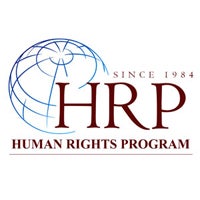
Harvard Law School’s International Human Rights Clinic submitted an amicus curiae brief to the Second Circuit in support of a petition for rehearing en banc in a major corporate Alien Tort Statute (“ATS”) case, Kiobel, et al. v. Royal Dutch Petroleum Co., et al.
In a September 17, 2010, ruling, the Second Circuit became the first appellate court to reject the proposition that corporations may be held liable under the ATS for torts in violation of international law.
The brief (PDF) was filed on behalf of professors of federal jurisdiction and legal history who argue that the history and purpose of the ATS support what the text explicitly provides: that jurisdiction extends to all causes in which an alien sues for a tort in violation of the law of nations, including cases against corporate defendants.
IHRC Clinical Director Tyler Giannini and Clinical Instructor Susan Farbstein ’04 served as counsel and supervised the writing of the brief. Harvard Law School students Stephen Cha-Kim ’11, Amelia Evans ’11, Elizabeth Forsyth ’11, Ben Hoffman ’11, Sandra Ray ’12, and Marissa Vahlsing ’11 contributed to the drafting of the brief.
“For more than fifteen years, no federal court has limited who can be sued under the ATS,” Giannini explained. “In fact, until Kiobel, the Second Circuit had allowed a long line of cases to proceed against corporations for egregious human rights abuses such as torture, extrajudicial killing, and forced labor.”
The Court’s holding, if allowed to stand, would have drastic implications for efforts to hold corporations accountable for human rights violations. The decision represents a significant departure from established ATS jurisprudence, and deprives survivors of corporate misconduct of a valuable tool for seeking justice.
“Under the majority’s rule, a corporation could operate the modern-day equivalent of the Nazi death camps, run a torture center, or trade slaves, and it would be immune from civil liability to its victims under the ATS,” Farbstein said. “That result undermines one of the core purposes of international law – to protect fundamental human rights.”
In Kiobel, Nigerian plaintiffs brought claims for extrajudicial killing, torture, crimes against humanity, and prolonged arbitrary arrest and detention. The plaintiffs alleged that the company collaborated with the Nigerian government to commit these violations to suppress their lawful protests against oil exploration.
William Casto, a Paul Whitfield Horn University Professor at Texas Tech University School of Law who signed the brief, offered his perspective as a friend of the court.
“The original drafters of the ATS made a conscious decision to confine cases under the statute to those brought by ‘an alien,’” Casto said. “In contrast, Congress placed no limits on who could be a defendant.”